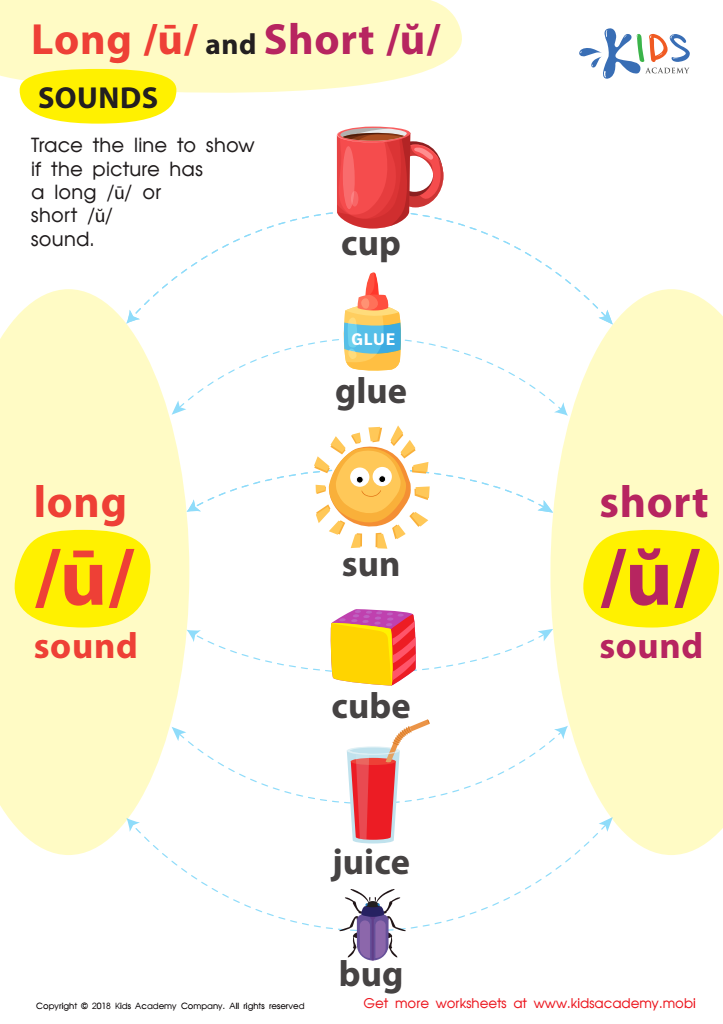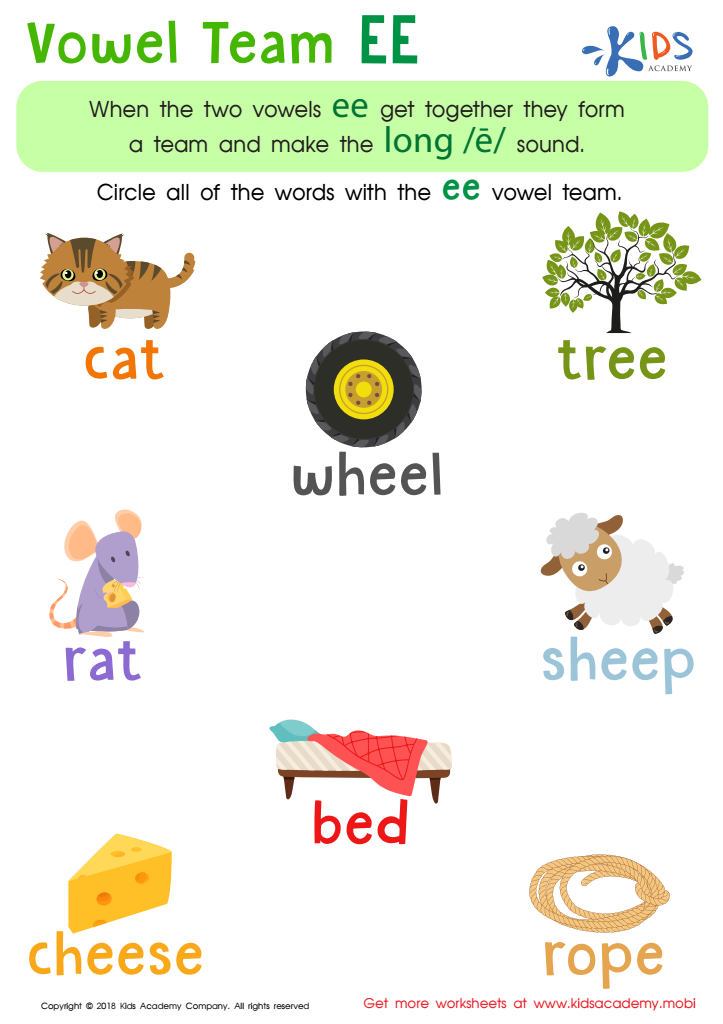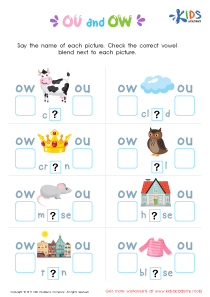Vowel Recognition Normal Long And Short Vowel Worksheets for Ages 4-7
4 filtered results
-
From - To
Enhance your child's reading skills with our engaging and educational Vowel Recognition Worksheets, designed for ages 4-7. These worksheets help young learners differentiate between long and short vowel sounds, an essential skill for early reading success. Each activity is crafted to reinforce vowel identification through fun and interactive exercises, ensuring kids stay motivated and build strong foundational language skills. Perfect for classroom use or at-home practice, these worksheets support your child's journey to becoming a confident reader. Download now and watch your child's phonics skills soar! With Kids Academy, learning vowels is both effective and enjoyable.


Let's Check Long Vowels: Assessment Worksheet


Reading: Long U and Short U Sounds Worksheet


Long Vowel Maze /o/ and /i/ Worksheet


Reading: Vowel Team EE Worksheet
Vowel recognition, including understanding the differences between long and short vowels, is a vital foundational skill for children ages 4-7. This early phonetic awareness is crucial for several reasons. Firstly, it directly impacts a child's ability to decode words, which is essential for reading fluency. When children can recognize and differentiate between vowel sounds, they can more easily sound out and blend words, leading to better reading proficiency.
Secondly, this skill is a building block for spelling and writing. Knowing whether a vowel makes a long or short sound helps children spell words correctly and choose the appropriate vowel combinations in their writing. This understanding can significantly improve their confidence and academic performance.
Thirdly, early vowel recognition is linked to improved language and communication skills. Phonemic awareness, which includes distinguishing vowel sounds, supports vocabulary development and helps children understand the structure and meaning of words, leading to improved comprehension.
Lastly, helping children master vowel sounds can make learning more enjoyable and less frustrating, cultivating a positive attitude toward education. Therefore, parents and teachers should place special emphasis on vowel recognition to support children's overall literacy and educational growth.

 Assign to My Students
Assign to My Students












